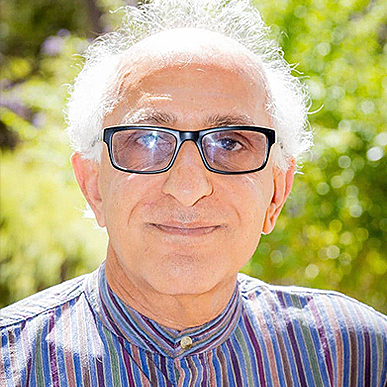More about HUMA African Epistemologies Advanced Seminar Series
HUMA African Epistemologies Advanced Seminar Series
Speaker: Saleem Badat (University of the Free State, South Africa)
Introduction: In this seminar, I reflect on the questions of research on, for, with, in, and of Africa in relation to knowledge-making in the arts, humanities, and social sciences and contemporary Global North hegemony.
These are large issues, to which I cannot do full justice in a short seminar. I engage them to highlight various challenges and the interventions they require by diverse actors if African arts, humanities, and social sciences scholarship is to thrive, overcome its subordinate position in global scholarship, and contribute meaningfully to Africans’ leading rich, rewarding, and secure lives and to the global stock of knowledge and understanding that advances human well-being.
Given the increasing critique of the structure of the knowledge domain by Global South scholars, my arguments seek to contribute to efforts to erode Eurocentric (perhaps, more accurately, Anglo-American and French) epistemic domination, decolonise knowledge, and advance epistemic justice, all of which are necessary for African scholarship to flourish.
Advancing scholarship that is on and for Africa, that is undertaken by Africans and with African scholars and institutions, principally in Africa, and that is of Africa, requires scholars, universities, and research institutions in the Global South and those in the Global North who stand in solidarity to forge appropriate strategies and tactics that systematically challenge, erode, and overcome Global North hegemony in knowledge-making in the arts, humanities, and social sciences. This is an enormous yet critical and necessary task.

About the speaker: Saleem Badat is a Research Professor in the History Department in the Faculty of Humanities at the University of the Free State, South Africa. He holds qualifications from the University of KwaZulu-Natal, South Africa, Boston University, United States and a PhD in Sociology from the University of York, United States. He was the first Program Director of International Higher Education & Strategic Projects at the Andrew W. Mellon Foundation in New York (2014–2018). Saleem began his academic career in 1989 at the University of the Western Cape, South Africa, where he eventually became the Director of its (Higher) Education Policy Unit. In 1999, he was appointed the first Chief Executive Officer of the Council on Higher Education, which advises the Minister of Higher Education & Training on higher education policy issues and is responsible for quality assurance in higher education. In 2006, Saleem became Vice-Chancellor of Rhodes University, the first black South African to hold this post in 102 years, committed to advancing social equity, promoting academic quality, contributing to the development needs of South Africa and ensuring institutional cultural transformation.
Saleem is the author of Black Student Politics: Higher Education and Apartheid from SASO to SANSCO 1968—1990 (HSRC Publishers,1999), and Black Man, You are on Your Own (Real African Publishers, 2009); co-author of National Policy and a Regional Response in South African Higher Education, and co-editor of Apartheid Education and Popular Struggles in South Africa. In 2012 Jacana Press and Brill published his book, The Forgotten People: Political Banishment under Apartheid. His new book, Tennis, Apartheid and Social Justice, was published in 2023 by UKZN Press. His numerous book chapters, journal articles, policy reports, and newspaper opinion pieces are concerned primarily with questions of equity, redress, and social justice in and through universities and the decolonisation and transformation of universities in societies that were colonised.
He currently directs a research project on the Histories of Universities in South Africa that involves several universities and scholars. His own research is towards monographs on the history of universities in South Africa and his time as Rhodes University vice-chancellor.
